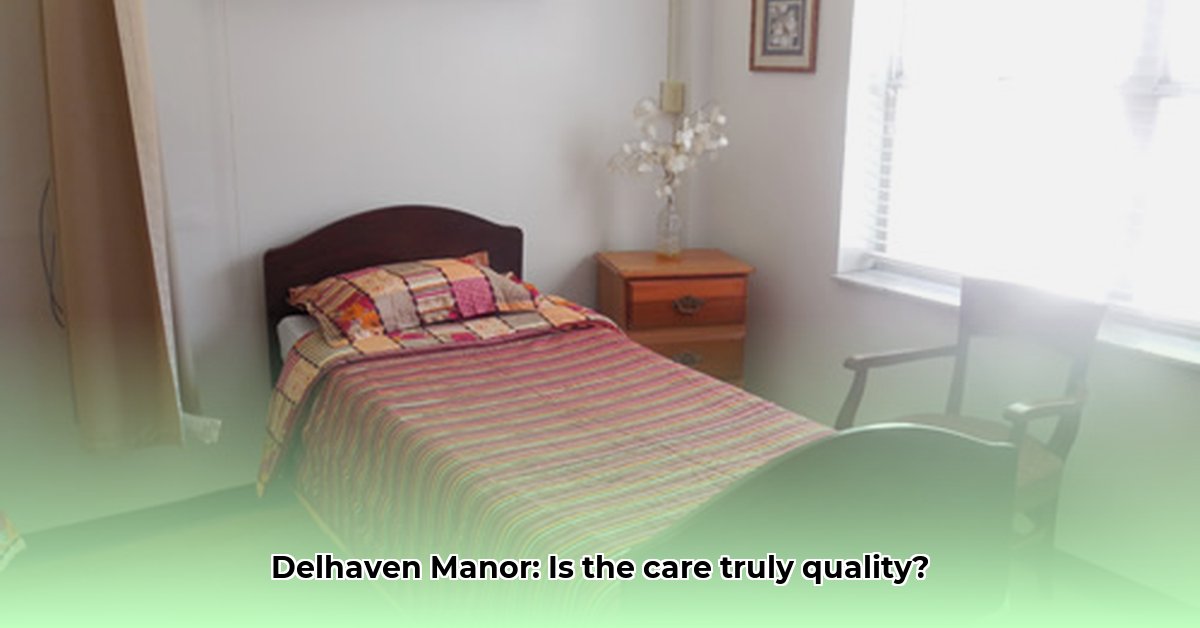
Staffing: A Critical Analysis
Delhaven Manor, established in 1965, provides a range of services including 24-hour nursing care, physical therapy, and nutritional planning. However, a review of its performance reveals significant concerns regarding staffing levels. The facility reports 2 hours and 56 minutes of nursing care per resident, falling considerably below both the Missouri average (3 hours and 19 minutes) and the national average (3 hours and 46 minutes). USA Today Data This shortfall raises serious questions about the quality and safety of resident care. Lower staffing levels likely translate to less individual attention, delayed responses to emergencies, and increased pressure on existing staff. The facility's "poor" rating for consistent weekend staffing further compounds this problem, impacting the continuity and quality of care. Does this inadequate staffing impact resident safety? The data suggests a clear need for immediate improvement. For further comparison, see similar facility data at Elms Haven Data.
Resident Outcomes: Independence and Emergency Room Visits
Delhaven Manor reports a 78.6% resident self-care independence rate, lagging behind both Missouri (82.7%) and national (85.9%) averages. This indicates potential deficiencies in supporting resident autonomy and overall well-being. Are rehabilitation programs adequately designed and resourced to help residents maintain or regain independence? Further investigation into the specific rehabilitation strategies is warranted. Furthermore, while the emergency room visit rate for short-term residents is slightly better than the Missouri average, the rate for long-term residents (0.8 per 1,000 patient days) is concerning. Each emergency visit represents a preventable crisis, highlighting a need for improved preventative care and enhanced monitoring systems. This suggests that Delhaven Manor could benefit from rigorous review of its preventative strategies and a deeper analysis of the root causes of these emergencies.
Contrasting Performance: U.S. News & World Report Rating
Despite a commendable 91.3% flu vaccination rate—significantly exceeding Missouri's average—Delhaven Manor receives a "Below Average" overall rating from U.S. News & World Report. This discrepancy between specific positive indicators and the overall poor rating emphasizes the importance of addressing the systemic issues highlighted above, particularly staffing levels and resident outcomes. How does Delhaven Manor reconcile its high vaccination rates with its low overall rating? This begs for a comprehensive review of its operational procedures and care delivery model.
Actionable Strategies for Improvement
Delhaven Manor requires a multi-pronged approach to address its identified weaknesses. Key improvements should focus on these areas:
- Strengthen Staffing: Increase staffing levels to meet or exceed state and national averages. This may entail exploring various recruitment and retention strategies.
- Enhance Staff Training: Invest in comprehensive training programs and professional development opportunities to equip staff with the skills and knowledge to provide high-quality care.
- Implement a Quality Improvement Plan: Create a structured plan with clear goals, data collection mechanisms, and regular adjustments based on performance data.
- Foster Transparency and Communication: Maintain open communication with residents, families, and regulatory bodies to foster trust and shared accountability.
Actionable Intelligence Table
| Stakeholder | Short-Term Actions | Long-Term Actions |
|---|---|---|
| Delhaven Manor Mgmt. | Increase staffing; enhance staff training. | Implement comprehensive quality improvement and staff retention programs. |
| Residents & Families | Communicate concerns; advocate for improved care. | Participate in facility improvement initiatives; demand transparency. |
| Regulators (CMS/State) | Conduct thorough inspections; enforce regulations. | Strengthen oversight; promote data-driven quality improvement. |
| Competitors | Assess Delhaven Manor's performance; identify opportunities. | Develop innovative service models and patient care strategies. |
Conclusion
Delhaven Manor presents a complex picture. While demonstrating strengths in some areas (high vaccination rates), significant weaknesses in staffing and resident outcomes require immediate attention. A commitment to transparency, data-driven improvements, and open communication is crucial for achieving lasting positive change and regaining public trust. Continuous monitoring of key performance indicators is essential to ensure progress and identify areas requiring further adjustments.